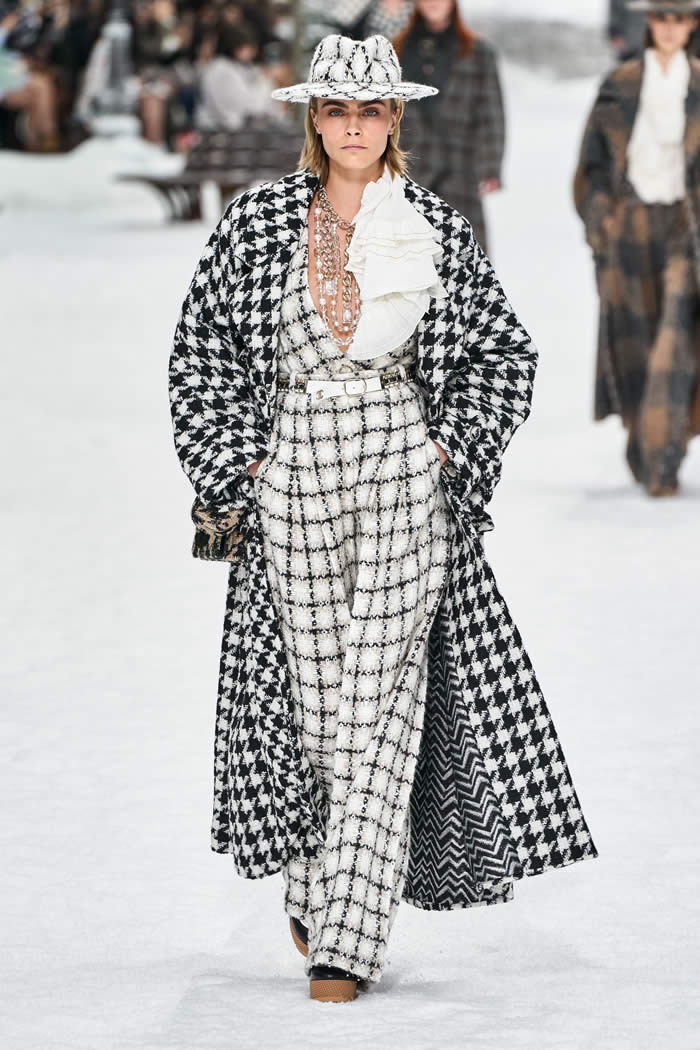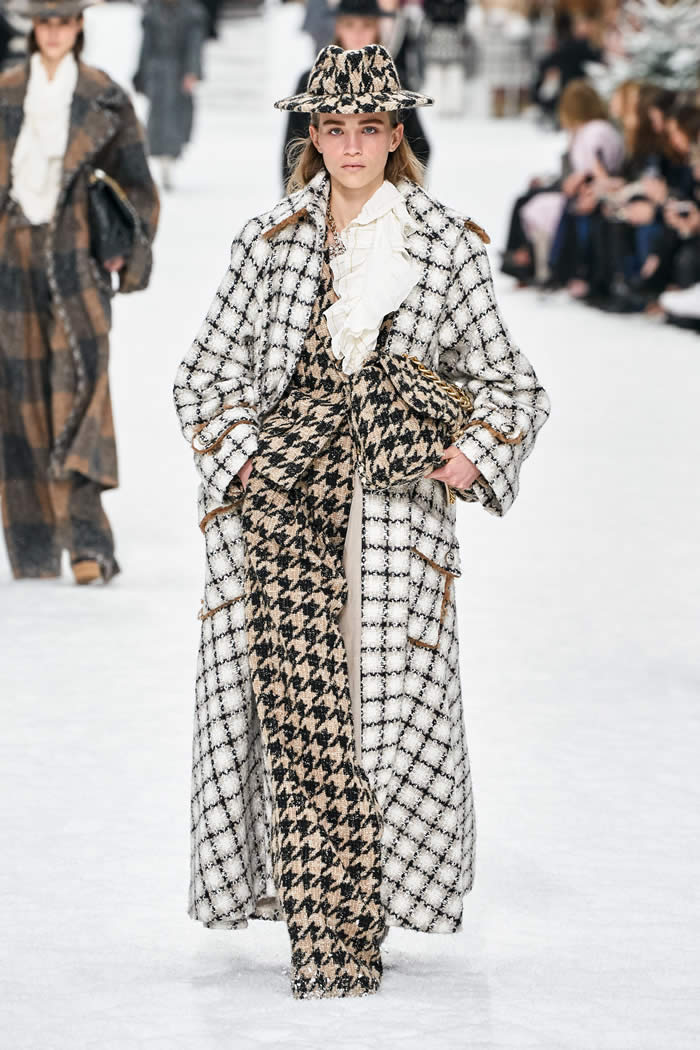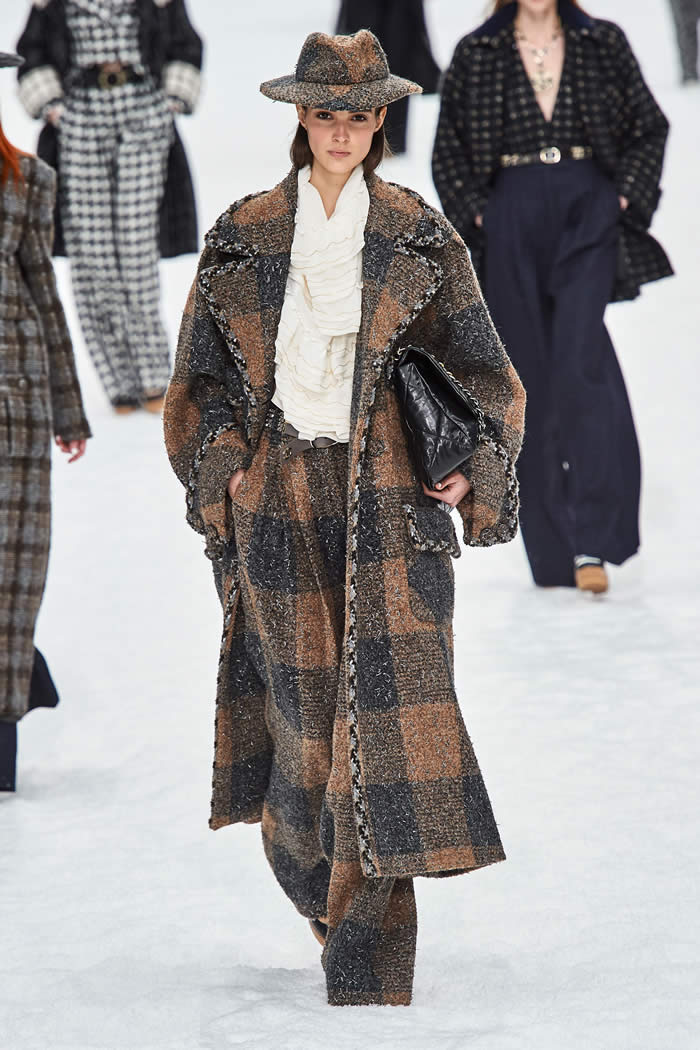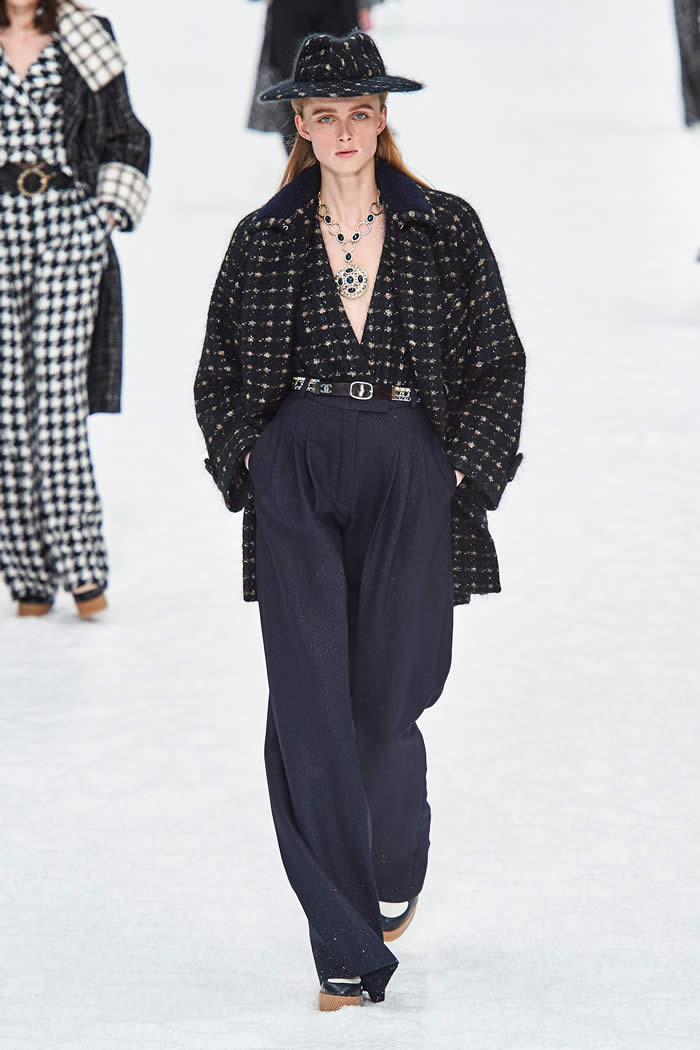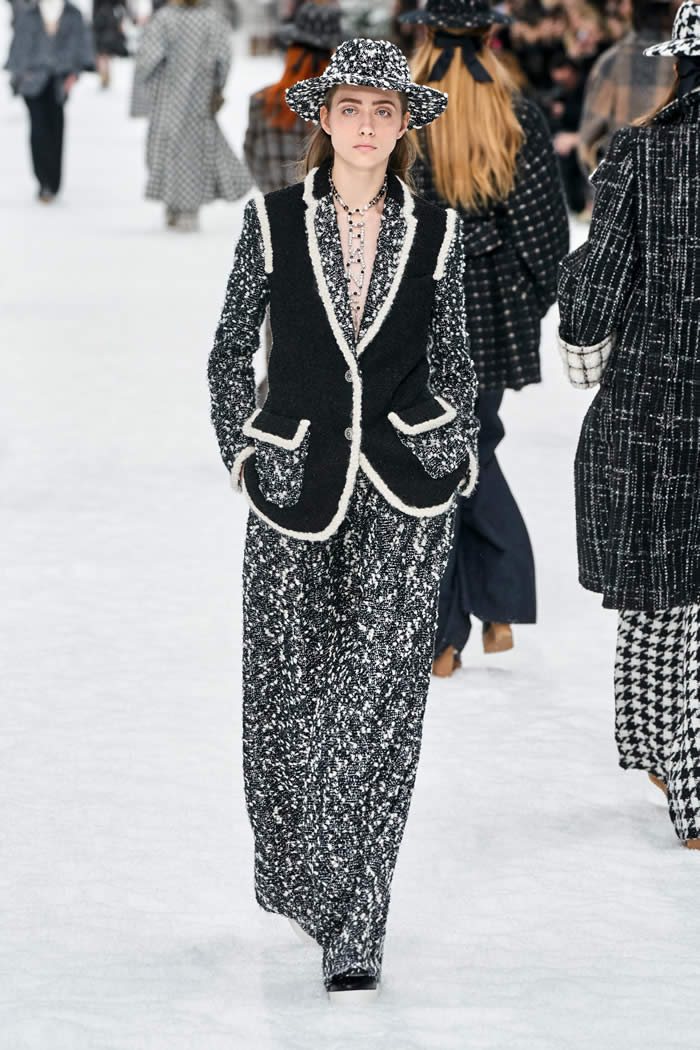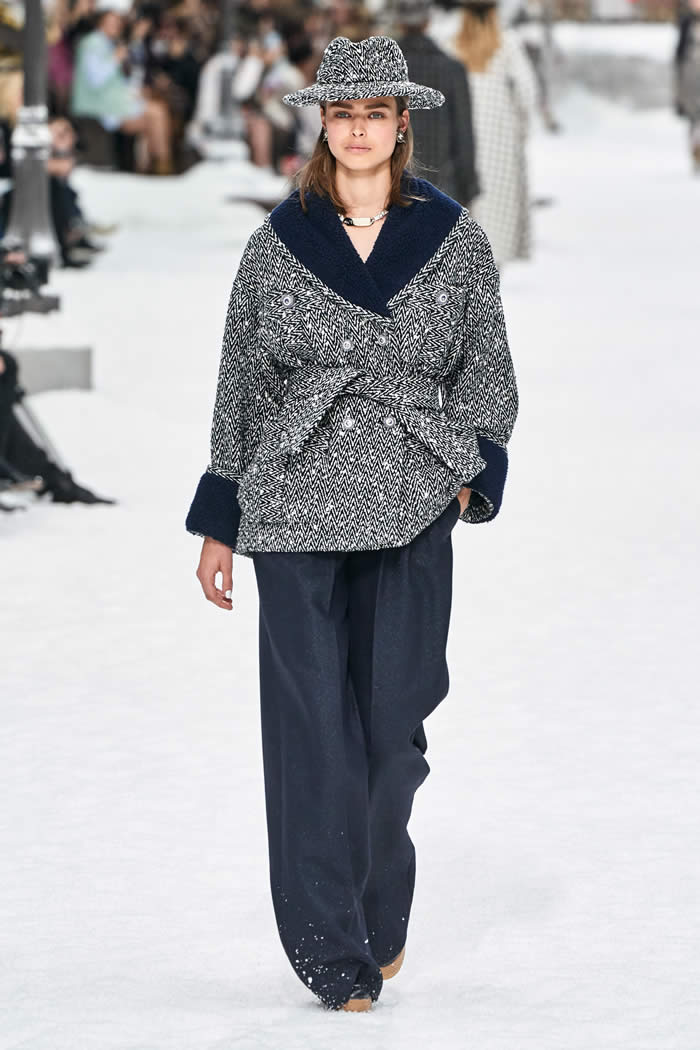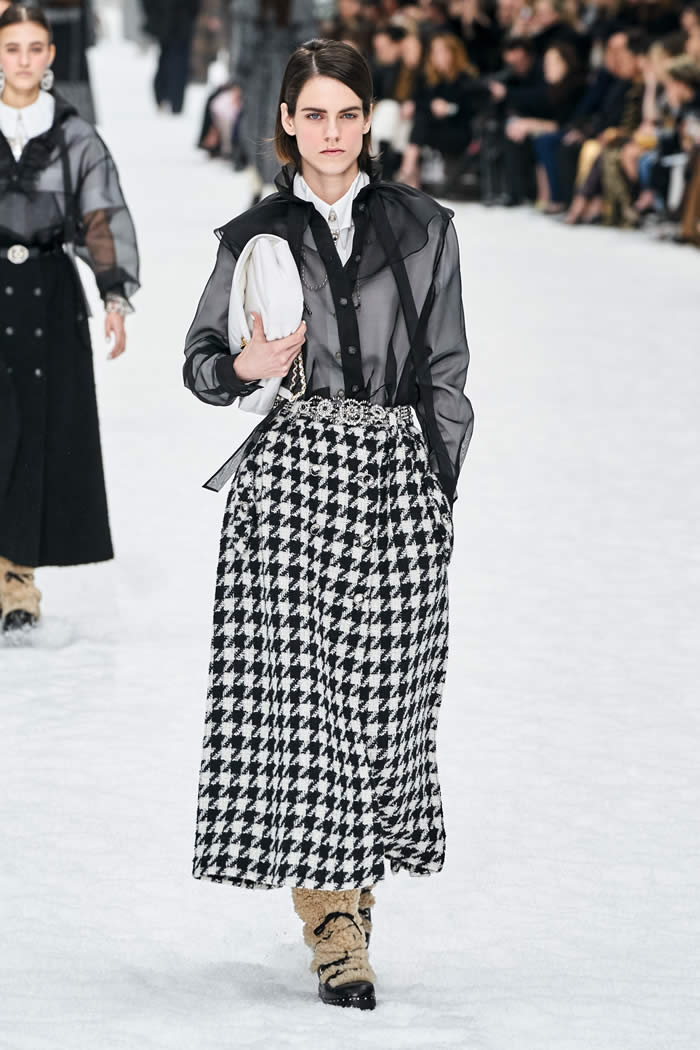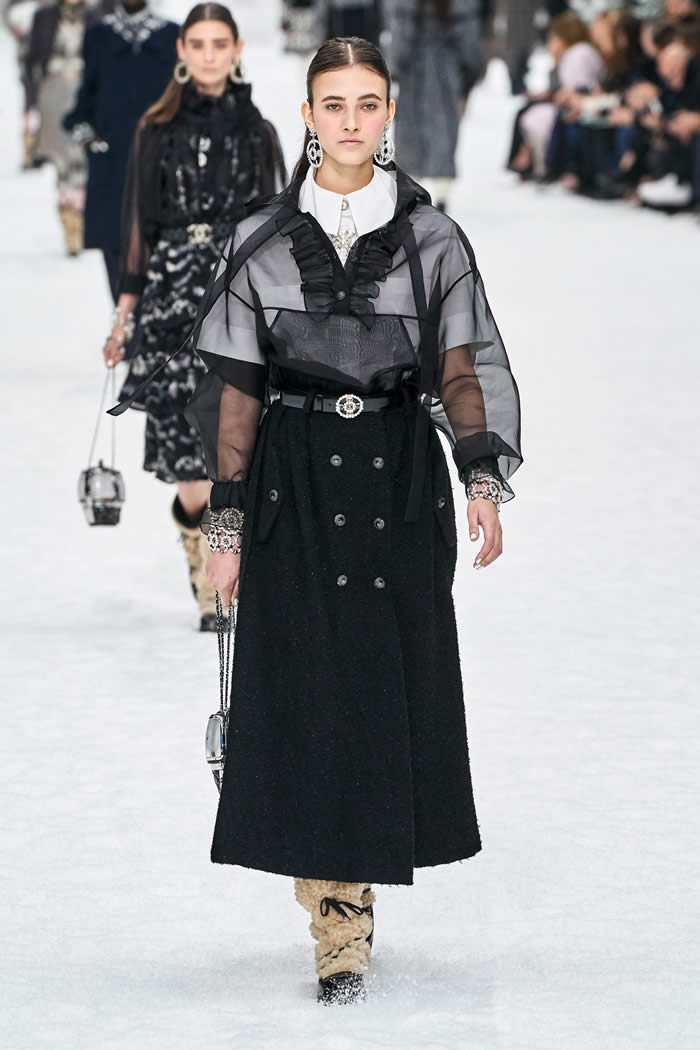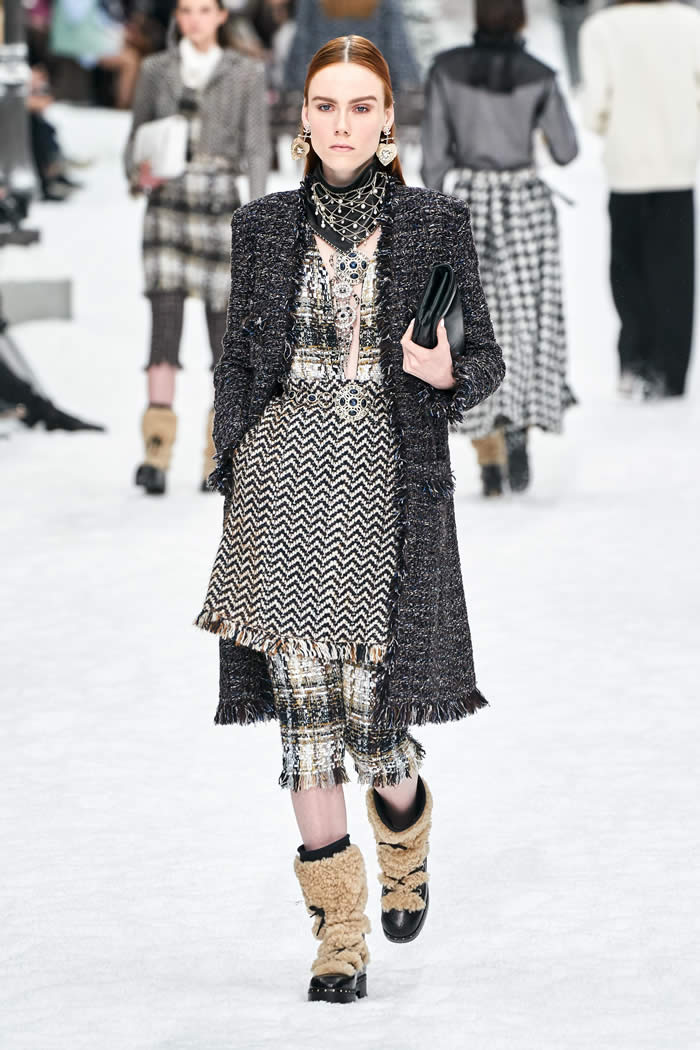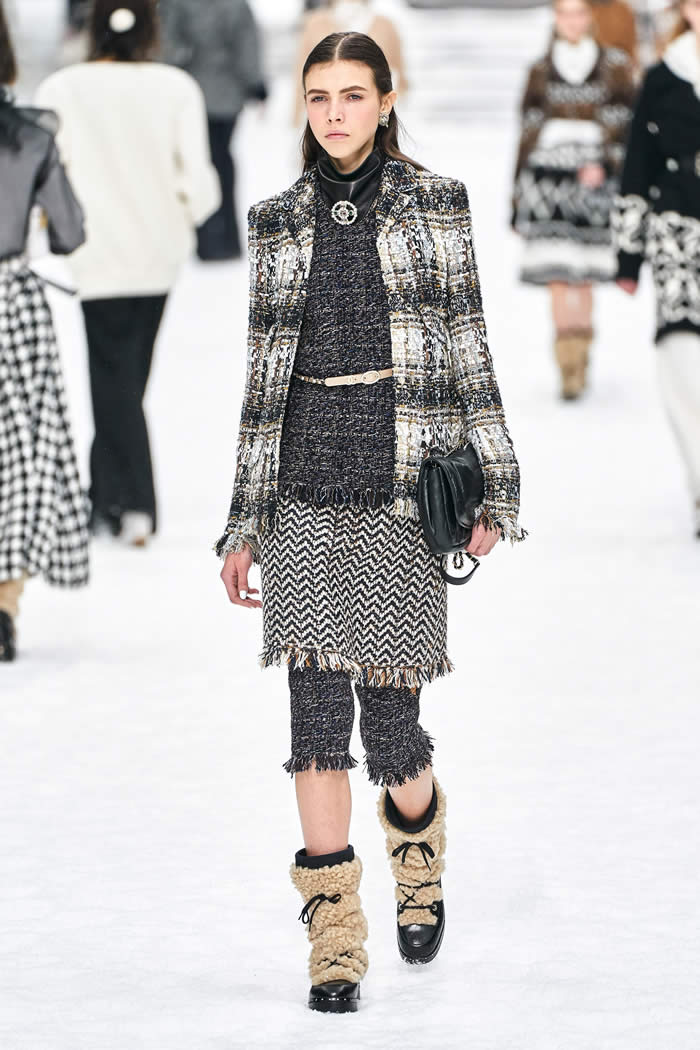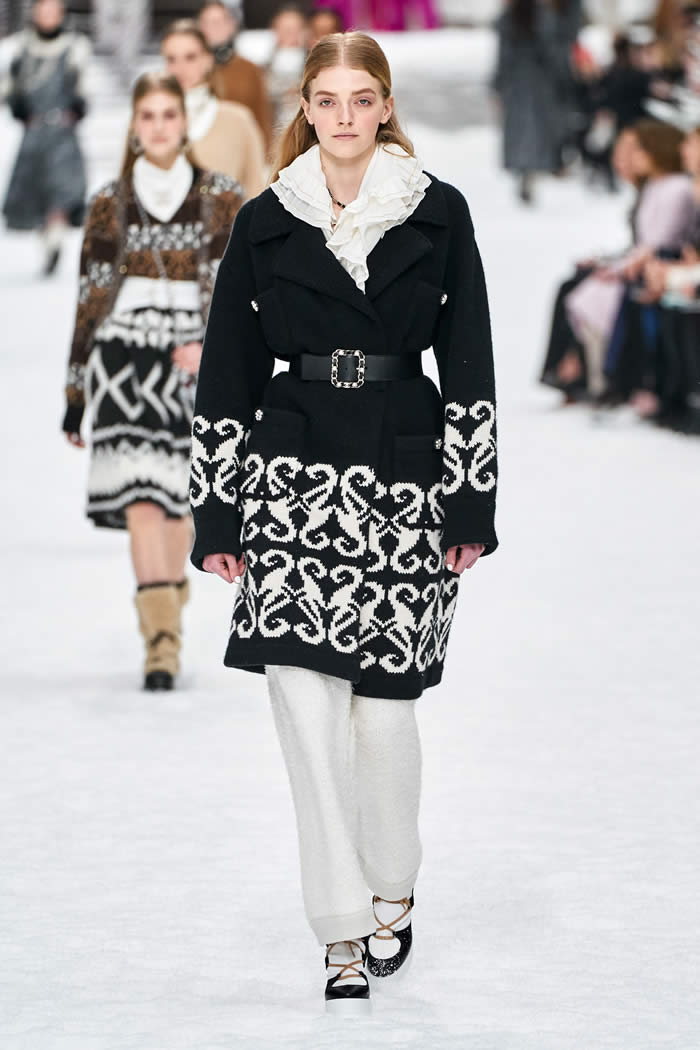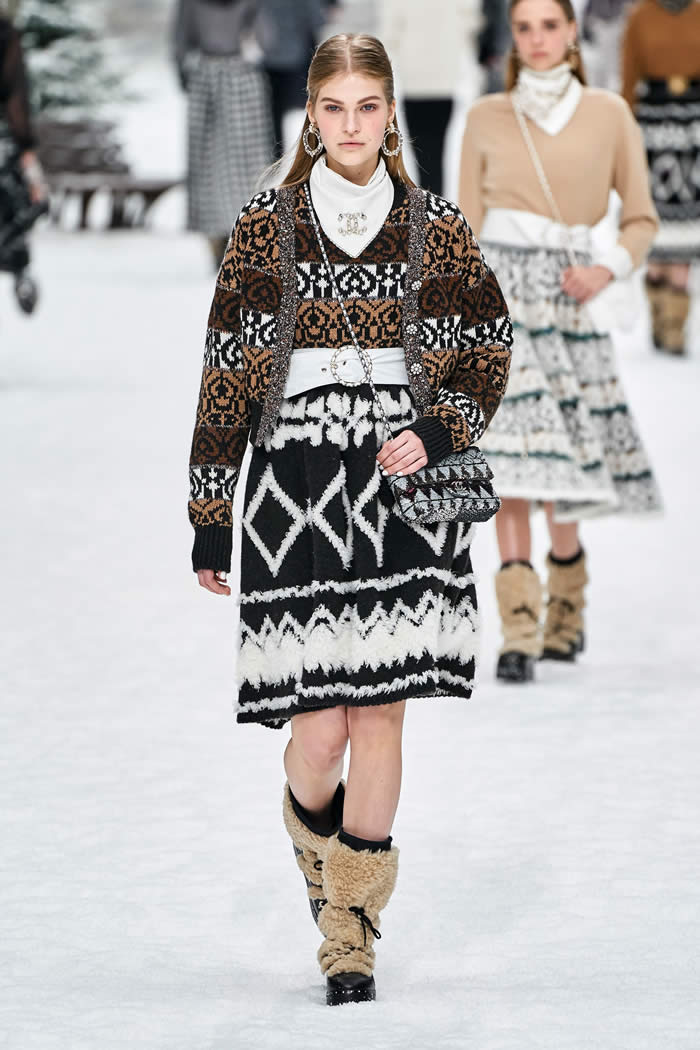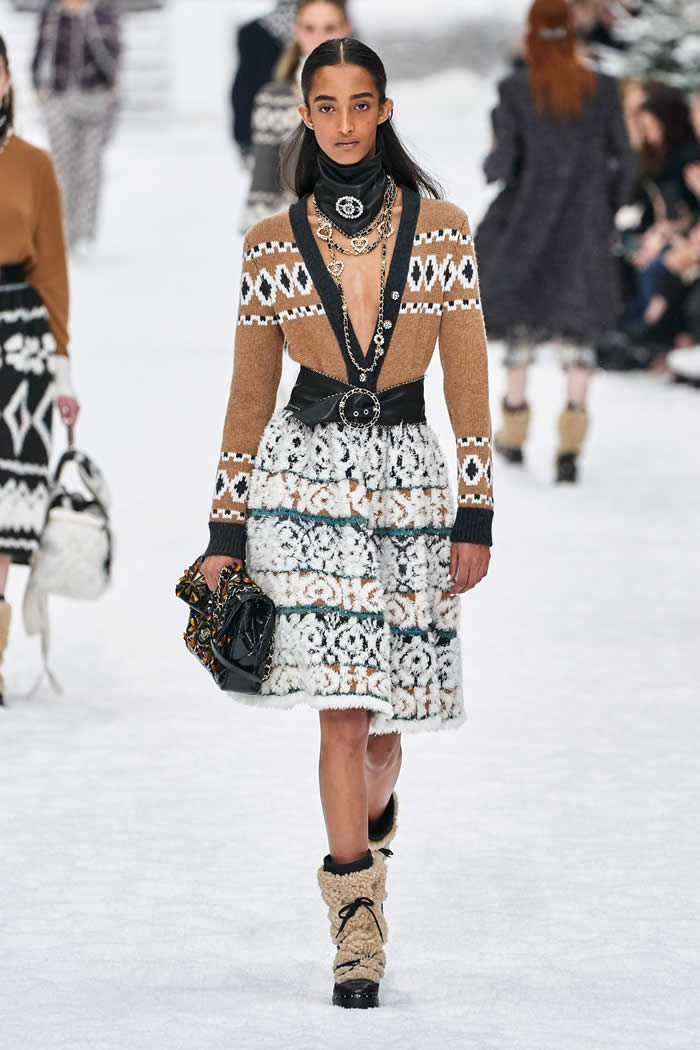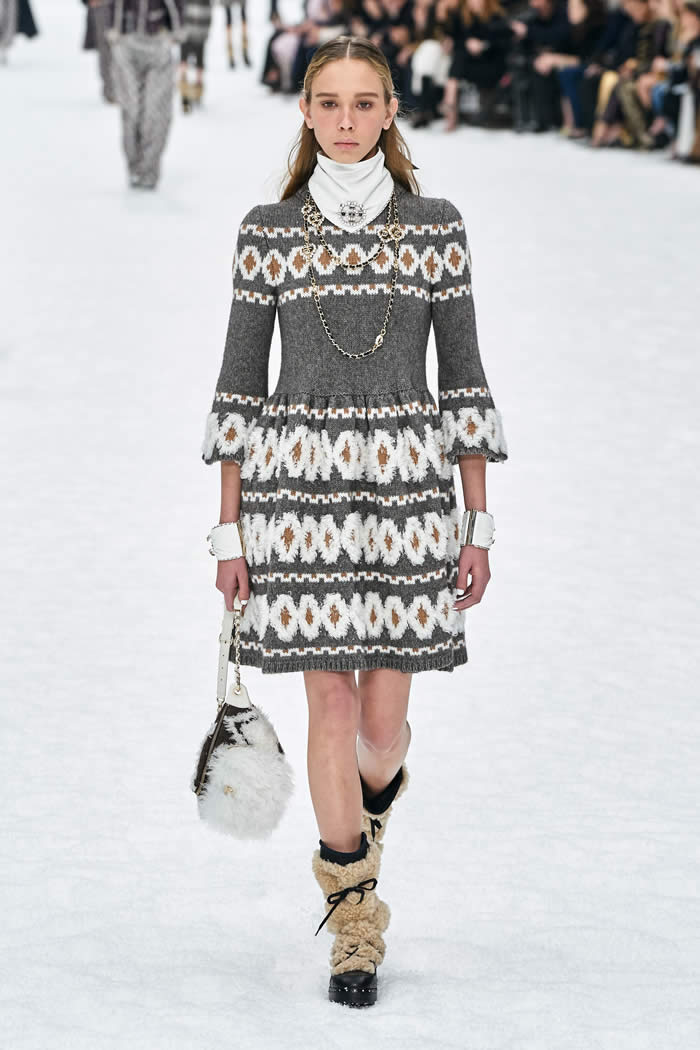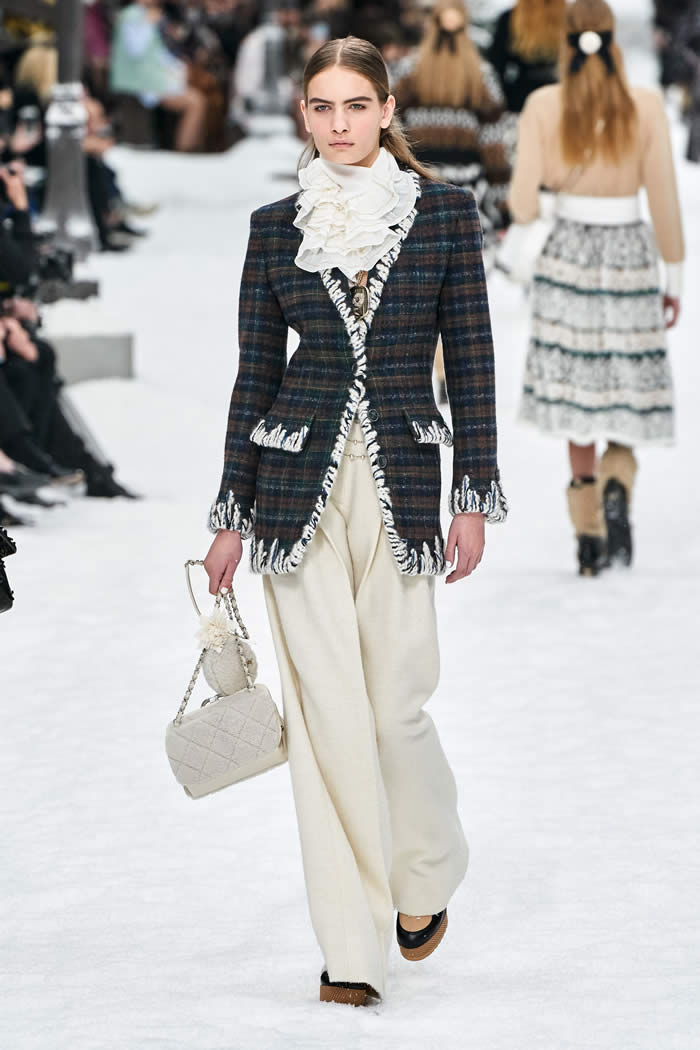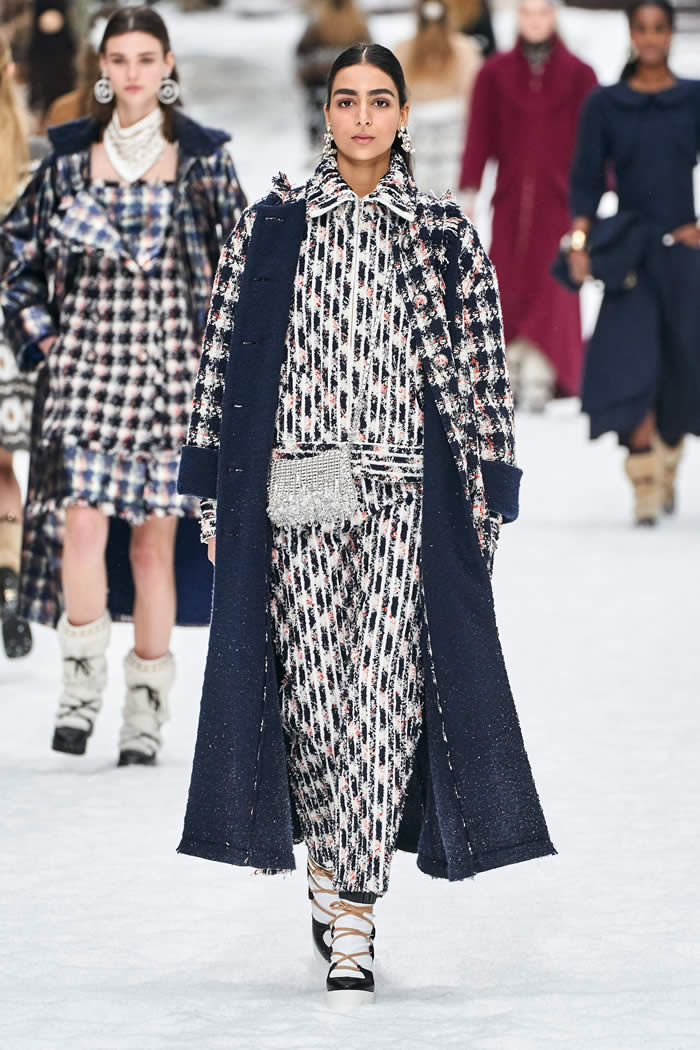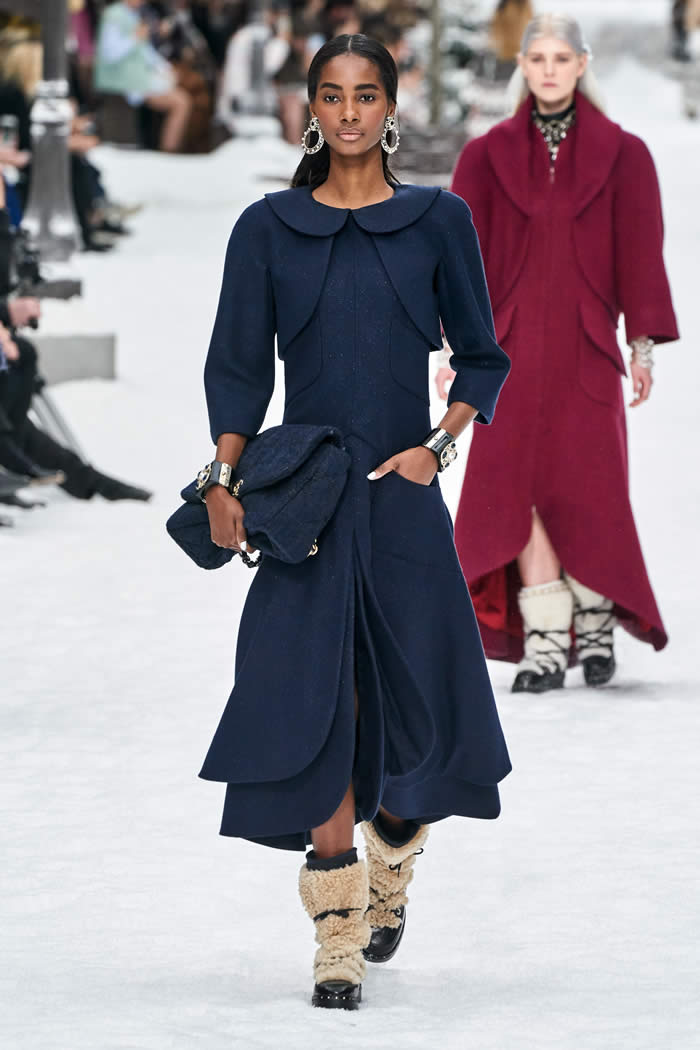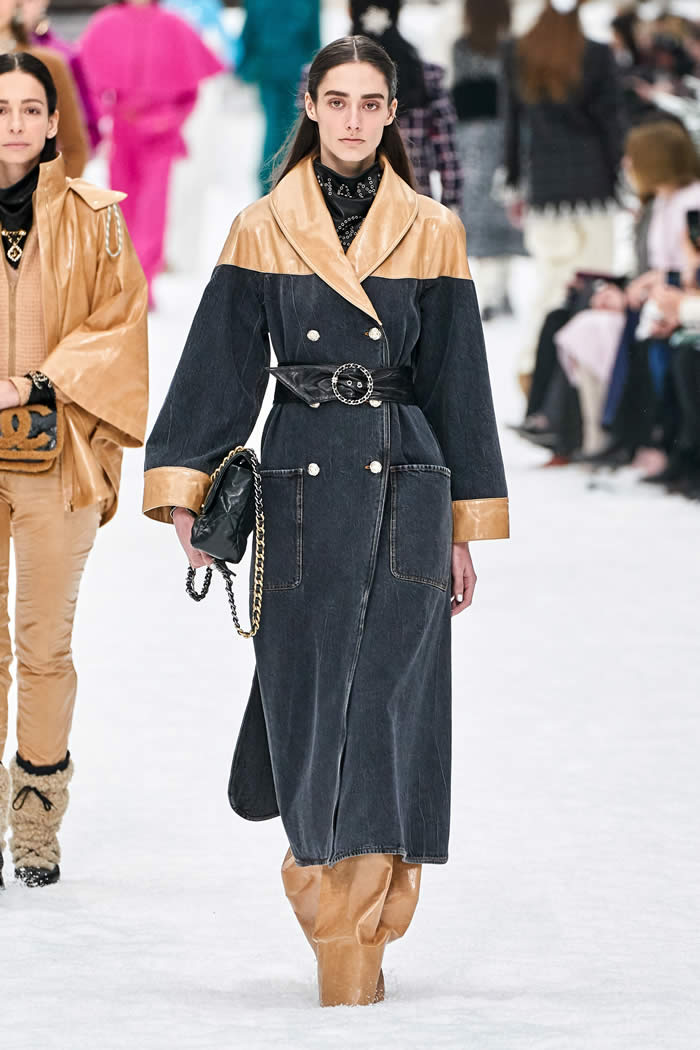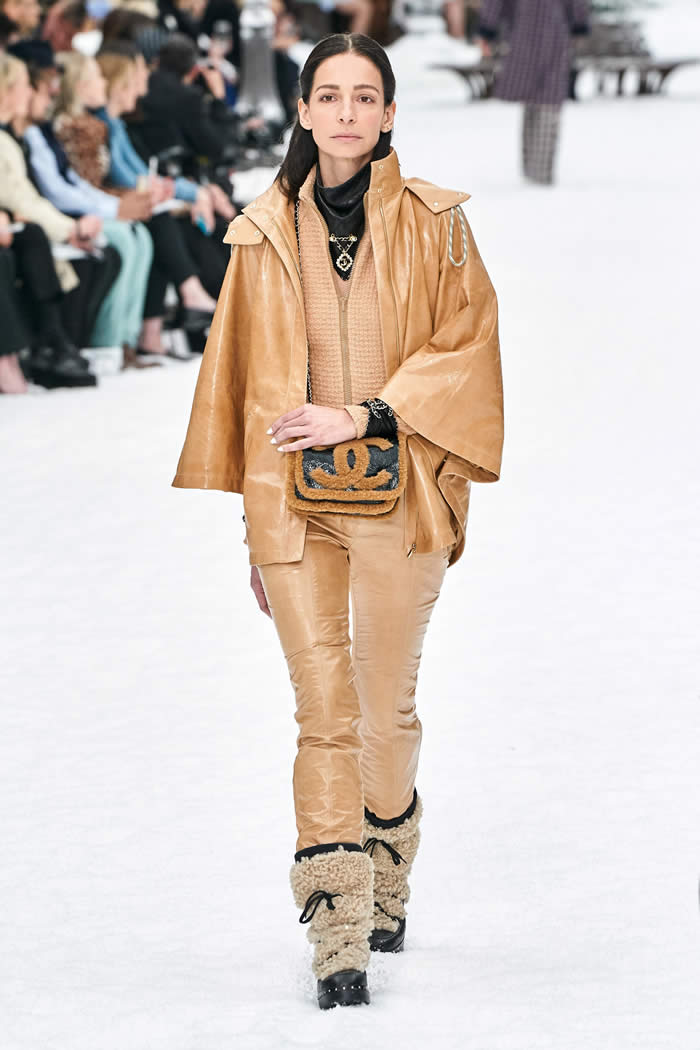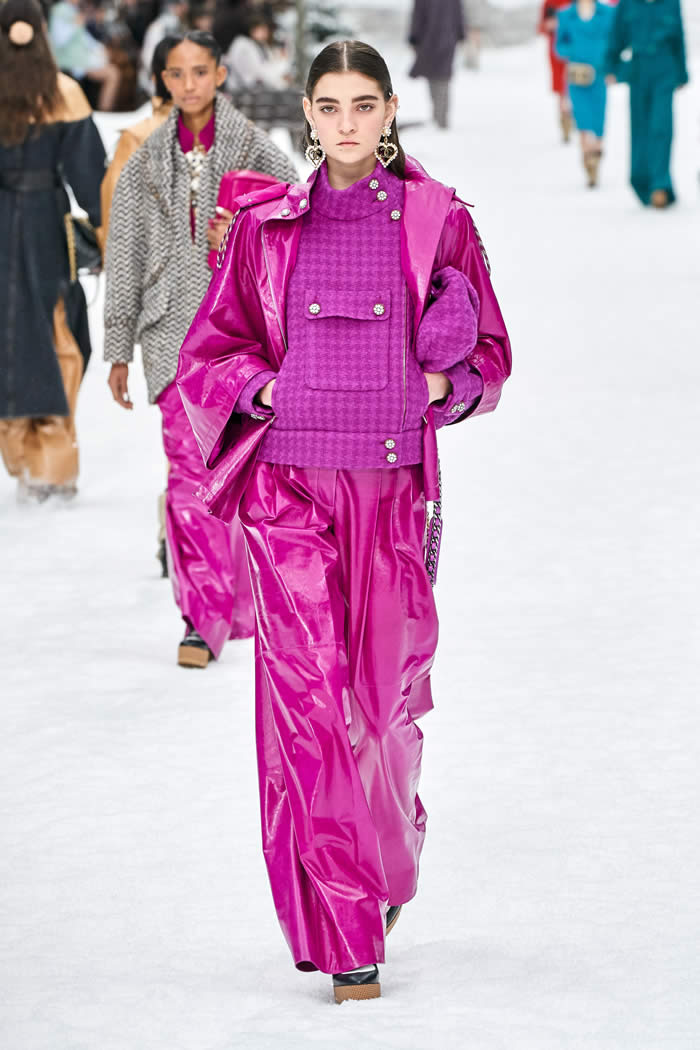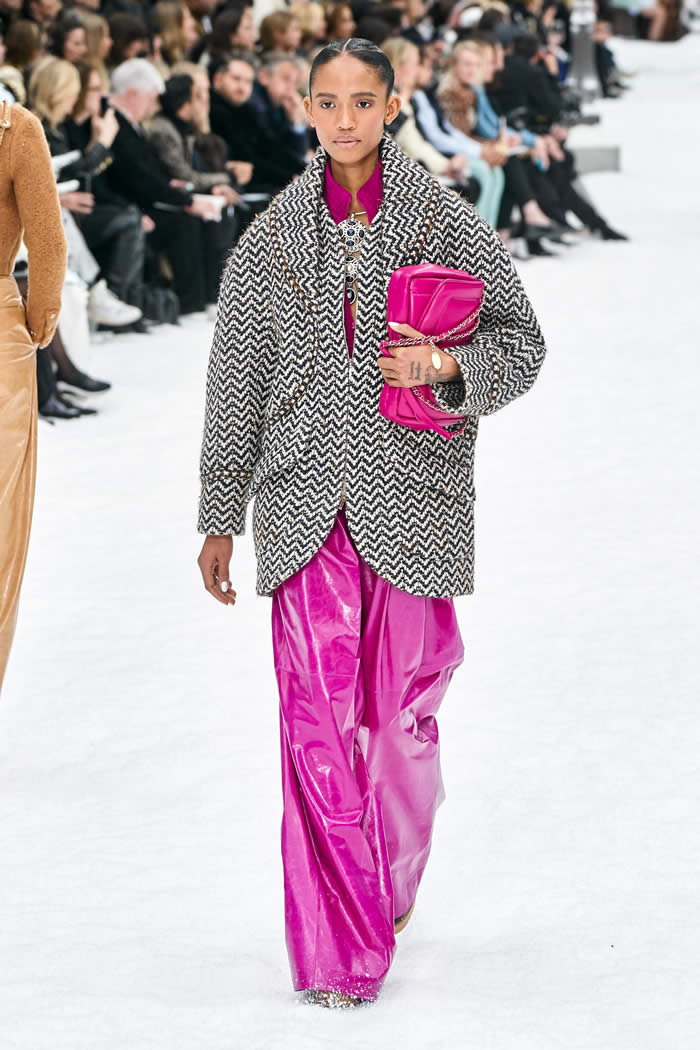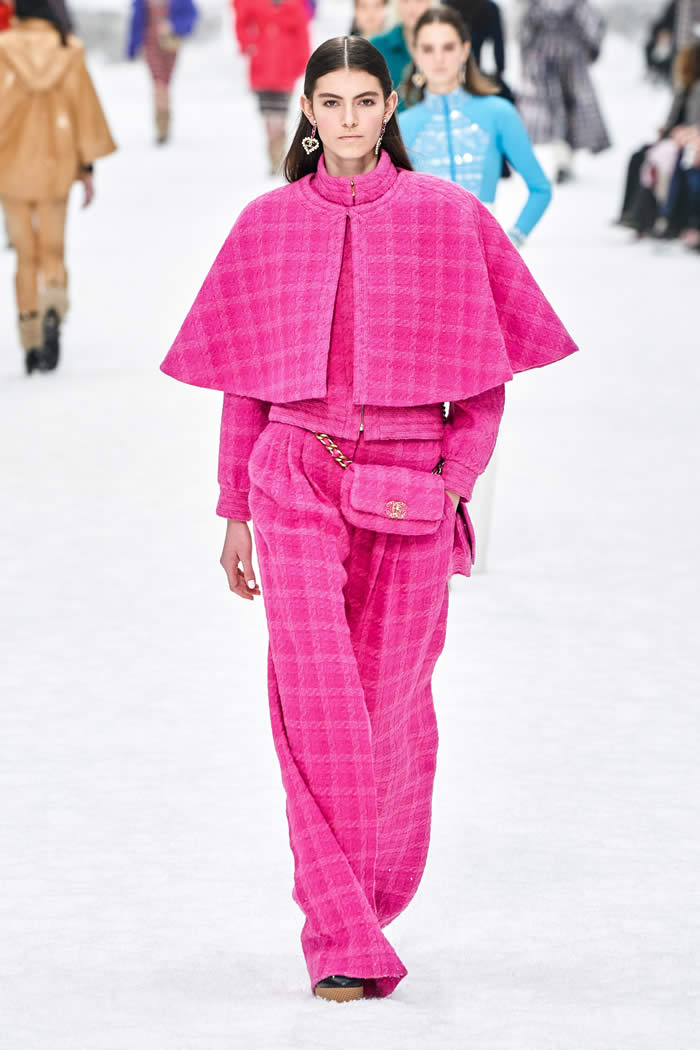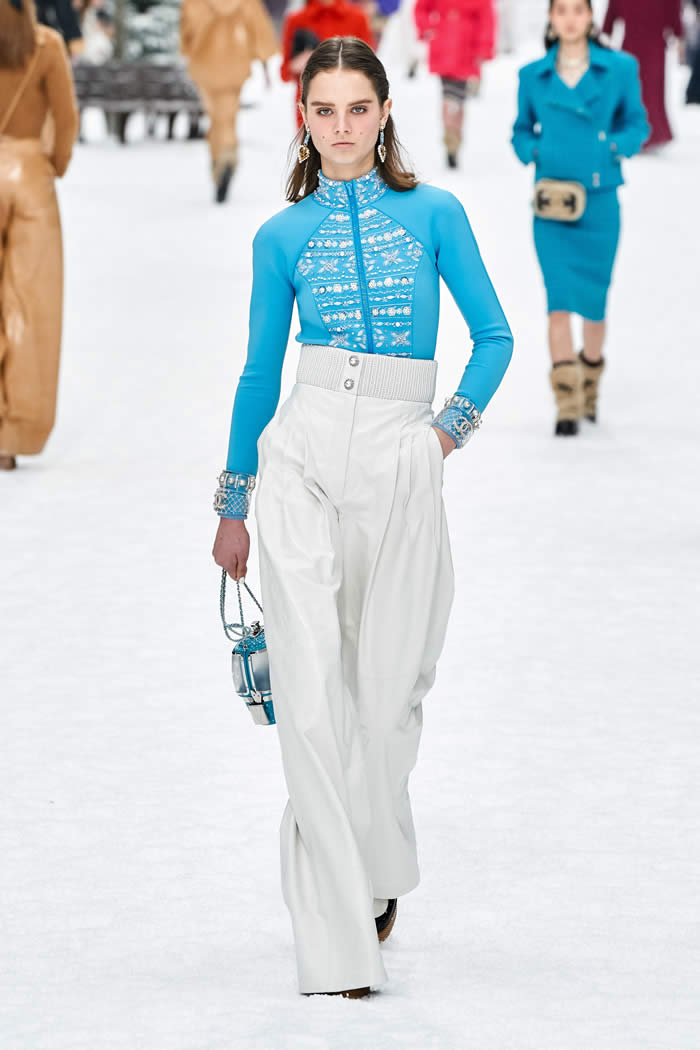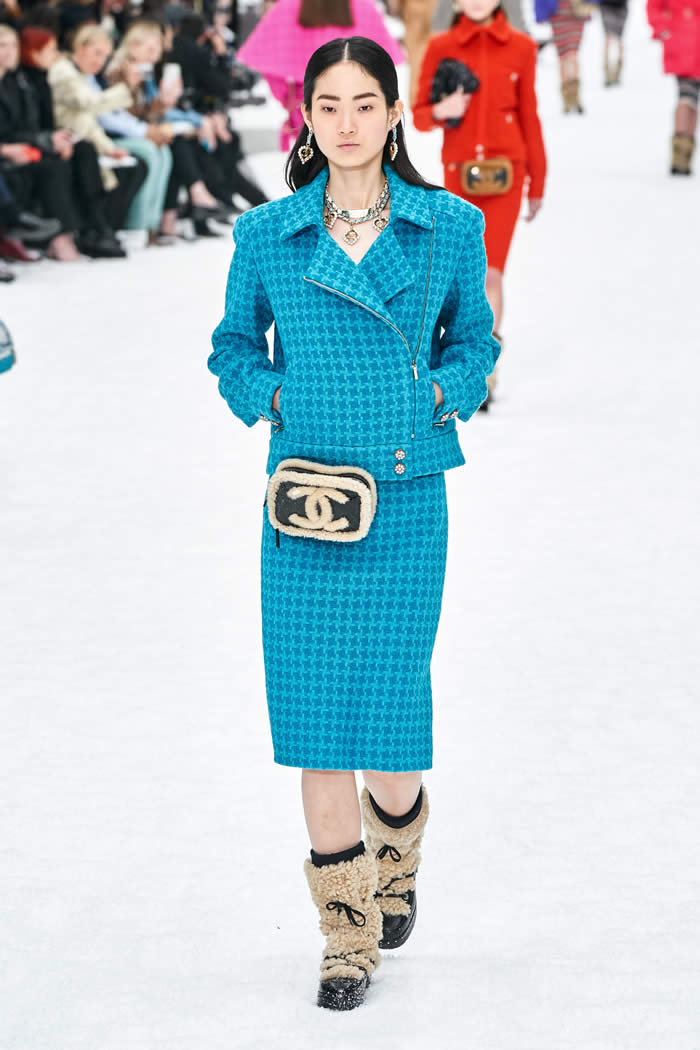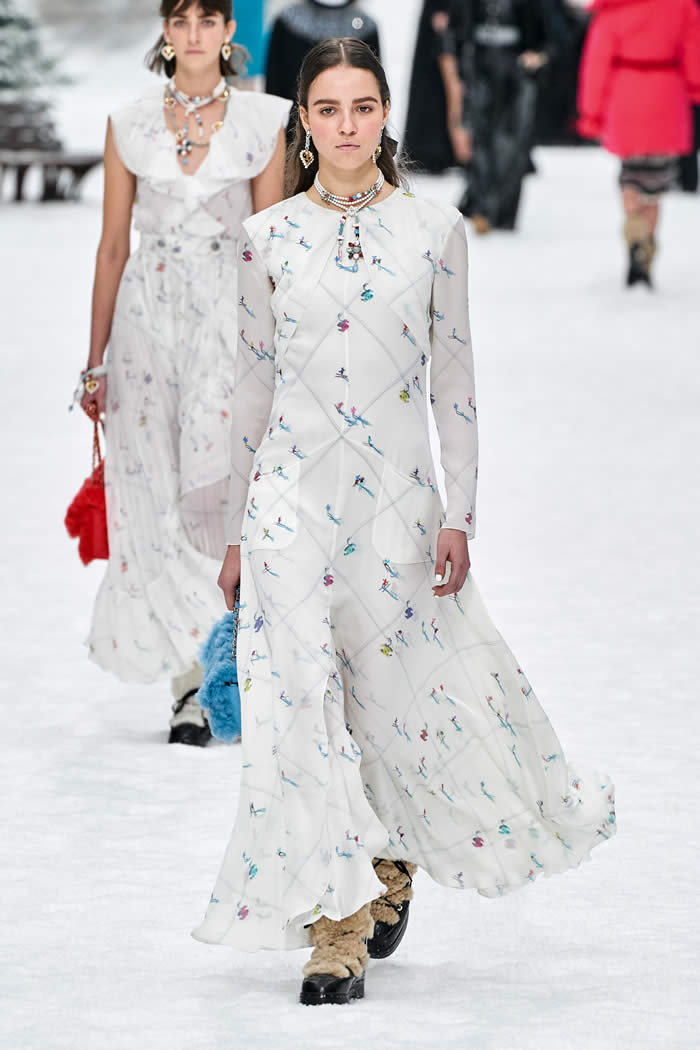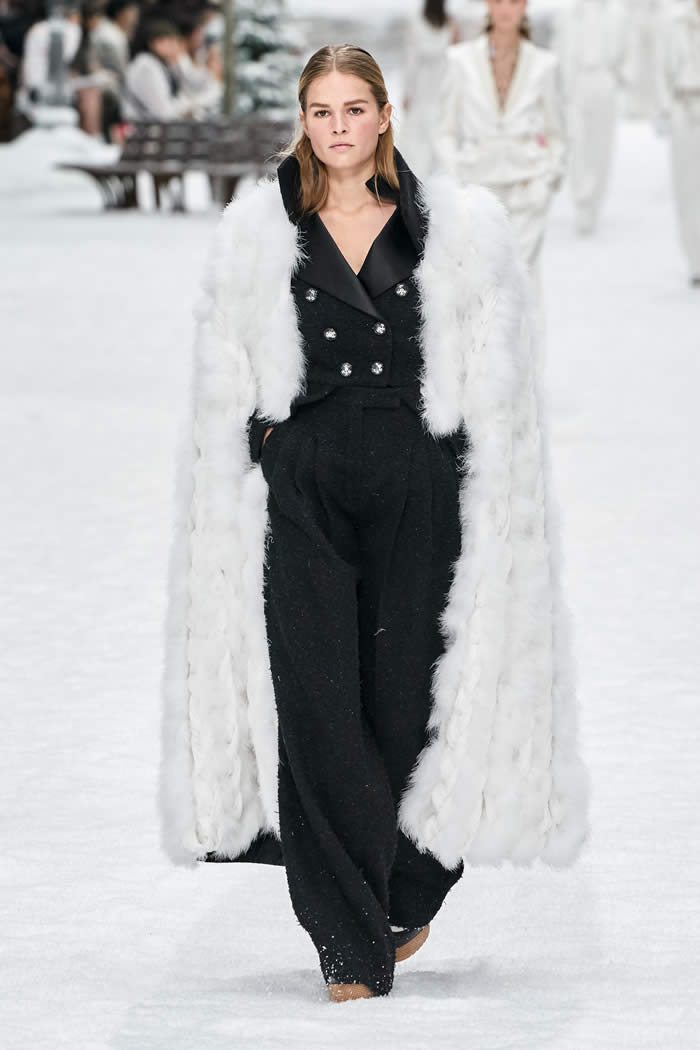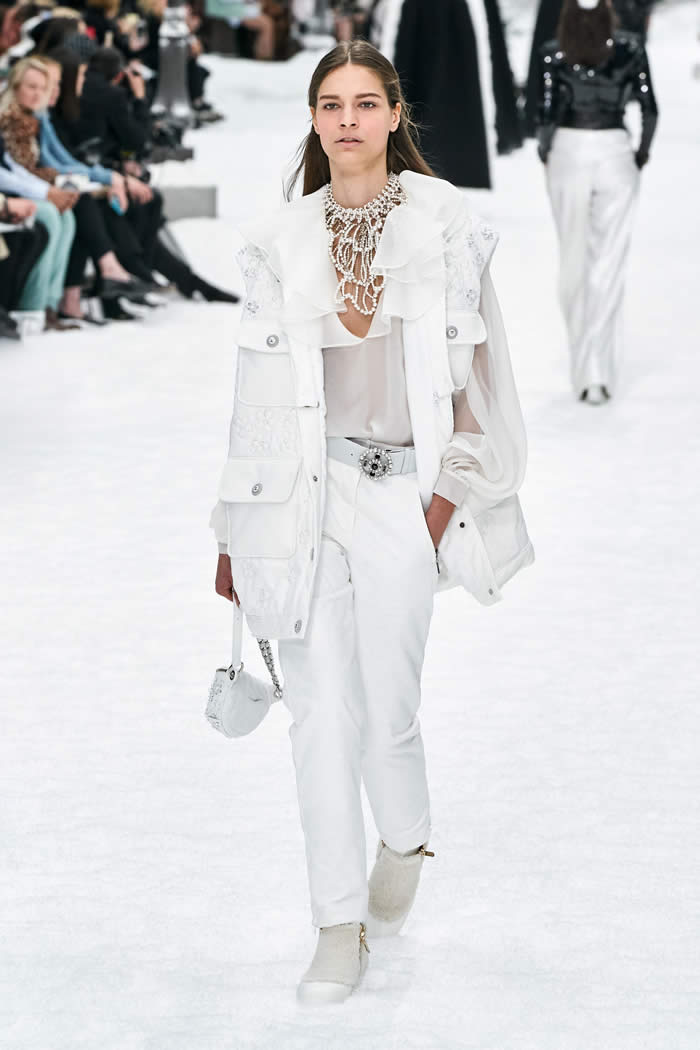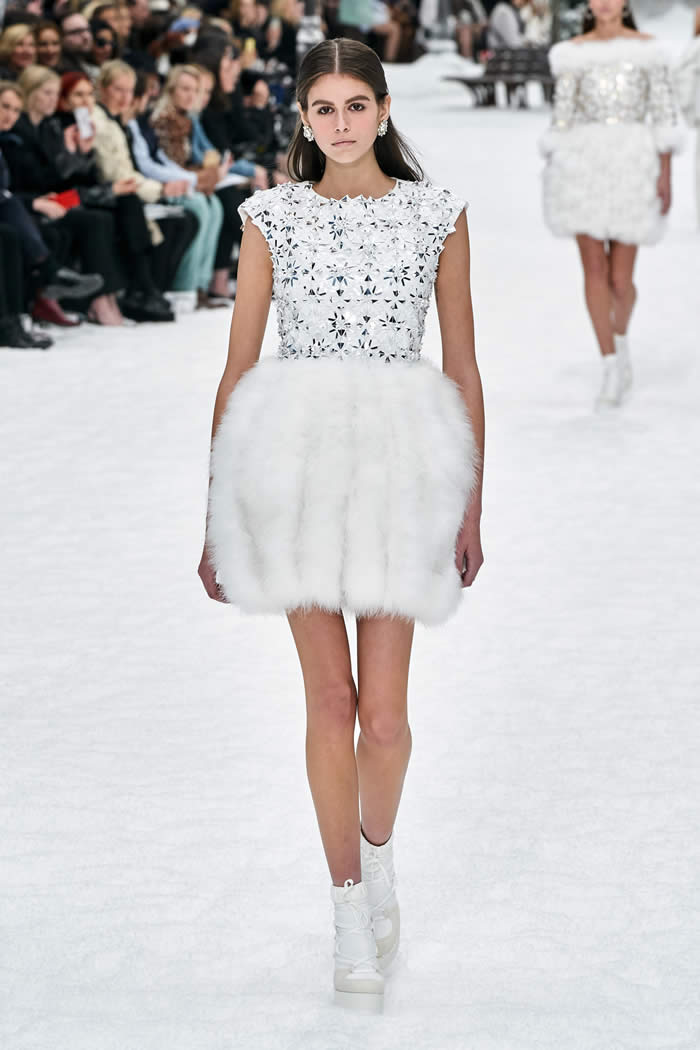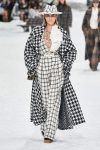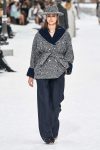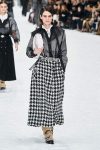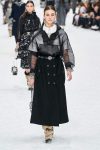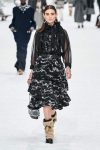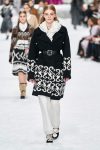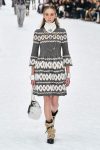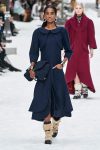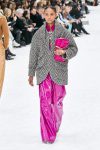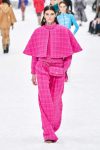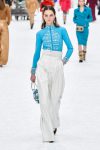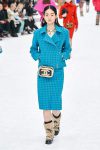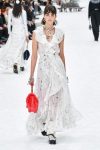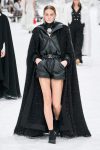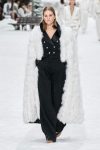There was an icicle-like tinkling on the soundtrack. Models assembled, one by one, on the snow-covered steps of a faux alpine hostelry, the Chanel Gardenia. It was hard, the suppressed anticipation of what was going to happen next. What is the correct form for honoring someone at a fashion show, someone who was always so fixed on waving away vulgar sentimentality, and who always had something hilariously skewering to say about the posthumous hagiographies of anyone he cared to mention? Karl Lagerfeld was the least sentimental of people. He loved his job and always regarded it as the task of continually living in the present. He reveled in letting it be known he had a “contract for life” with Chanel, which he enjoyed to the maximum moment.
Well, this is how it went. There was a minute’s silence. And then, Karl Lagerfeld’s voiceover, from a recent Chanel podcast (this man loved every tech advancement). He spoke in French, until the last sentence, where he burst through in English about his pleasure in imagining the detonation of a surprise on an audience in, “Oh! It’s like walking in a painting!”
The Chanel girls—his crew, the latest generation he’d encouraged and quipped with in the Chanel studio since 1983—were clearly conscious of the ceremonial responsibilities they had. They trod the “snow,” hands in pockets, insouciantly proving what a perfectly considered collection of wide-legged trouser suits these were—with long, swirlingly soft, checked tweed coats he’d envisaged in tandem with his longtime right-hand Virginie Viard.
That section was amazingly poised. Tailoring is a subject du jour, but through the filter of Chanel consciousness, we saw tradition, femininity, and an energetic projection of the shape of today. Let’s put it down here: The opening, some of the wide, pleated trousers, was incredibly on point—a flipping of the Chanel tradition of opening with tweed skirtsuits—with playful snowballs of tulle and crystallized snowflakes thrown into the back of the girls’ hair.
What Karl Lagerfeld never forgot—he was a rare intellectual pragmatist who frequently ridiculed high-concept fashion—is that clothes are nothing unless they are worn. That was Coco Chanel all over, too. It should be remembered that, by the late 1970s, few cared about her legacy. Her canon had been put in the shade by Yves Saint Laurent until Karl Lagerfeld was hired into the house by the Wertheimer family in 1983. It was Lagerfeld who irreverently illuminated the codes of Chanel—irradiating them in the constantly changing sidelights of the events of four decades’ worth of current affairs, the serial revolutions of fax, the Internet, social, and the global reach of fashion to new generations in Asia, and beyond.
He was always up for a topical gimmick and a punning accessory, but he also knew about emotional intelligence—that, and his connection with nature and nuances connecting the dots of his past, came through in his last few collections. The last big break he’d given his audience—the sight of barefoot girls running on a Caribbean beach—was superseded by this immersion in alpine sunlight.
So this collection was Lagerfeld at his uplifting best. No matter how dark the days were, his ability to throw on the icing of a ruffly white organza blouse, to sparkle up embroideries with a deft hand on a Nordic sweater, or to conjure dream dresses within any theme to which his huge imagination traveled. These were the gifts he gave to fashion. Today, as always.
As the models dashed away tears, and the audience stood in gratitude to applaud, the unforgettable memory of Karl Lagerfeld’s elegant, frivolous mind was lifted onto the Olympus of the fashion greats.
